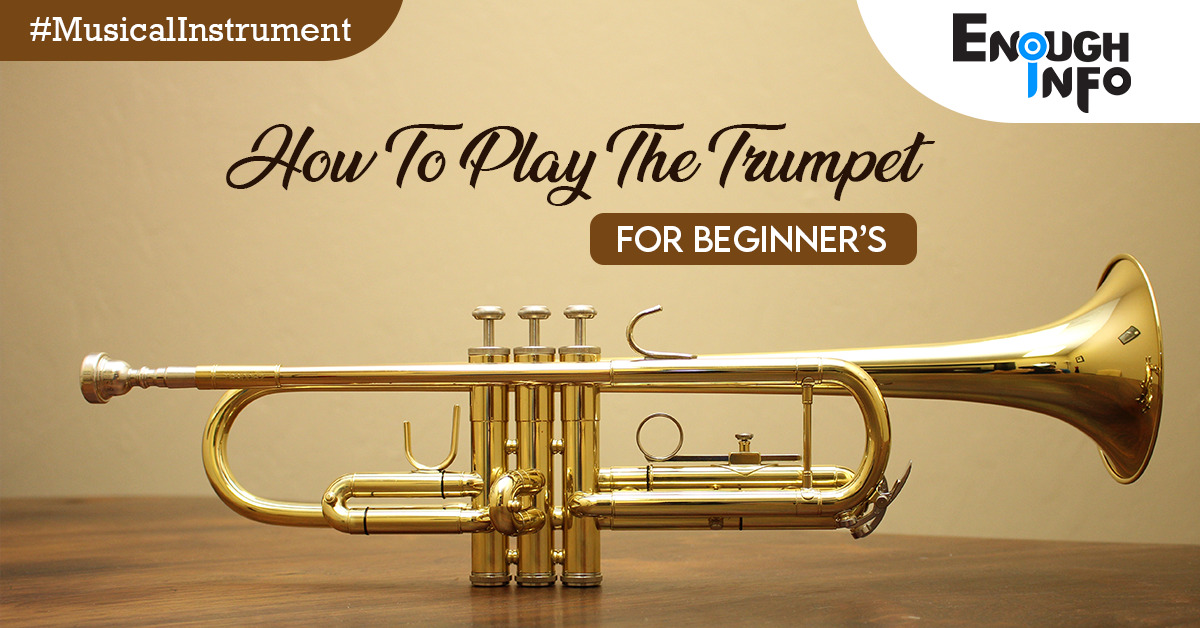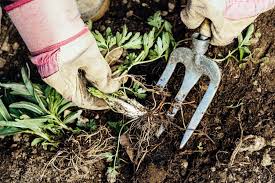How To Play The Trumpet For Beginners

How To Play The Trumpet For Beginners: The trumpet is a captivating and versatile musical instrument that has been a centerpiece in various genres of music for centuries. If you’re a beginner eager to embark on a musical journey, learning to play the trumpet can be an incredibly rewarding experience. As beginners progress in their trumpet-playing skills, they gain confidence in their abilities. Performing in front of others, whether in small settings or larger performances, builds self-assurance and stage presence. Overcoming challenges and sharing music with others boosts self-esteem and fosters personal growth. EnoughInfo.com
Read Also: How To Play The Saxophone For Beginners
Learning how to play the trumpet as a beginner has numerous benefits. It nurtures musical expression, cognitive development, discipline, teamwork, and confidence. It promotes physical and respiratory health, deepens appreciation for music and cultural connections, and serves as a means of emotional expression. Playing the trumpet is a fulfilling lifelong pursuit, providing endless opportunities for learning, personal growth, and enjoyment. How To Make Homemade Body Lotion(The Best Guide)

It is not an easy chore to play the trumpet. As a result, beginners must prepare themselves before learning how to play the trumpet. It will require time and work to practise and enhance skills to become a fluent instrument musician, especially a trumpet player. Each person’s method is unique, but it demands a positive mindset, a sincere desire, a strong effort, and even patience to pursue. Even if you lack inherent qualities such as some talents, you will be able to become a good trumpet player with the aforementioned attributes and a daily 25 – 35 minute practise session. How To Do Basic Home Carpentry
After preparing to discover the appealing trumpet, you should understand about its major components. This will undoubtedly assist you in selecting and using an excellent trumpet in the following phase.
What to look for when purchasing a trumpet:
- Slides and valves should be tolerance more loosely.
- Other sections should be able to move freely.
- When pressed down, valves should spring back up quickly and smoothly.
- Select an appropriate mouthpiece and horn compression.
- There should be no leaks, rust, or dents on the trumpet.
- Inquire about its guarantee. How To Organize A Garage(The Best Guide)
Make certain that you buy a trumpet rather than a cornet. In a few occasions, clients have no clear understanding of these two sorts and purchase the incorrect one online.
Furthermore, if you own a trumpet, you should take good care of it by keeping it dry, clean, safe, and properly lubricated for extended periods of use.
Read Also: How To Play The Flute For Beginners
FAQs & Answers on How To Play The Trumpet For Beginners
1. How long does it take to learn to play the trumpet?
The time it takes to learn to play the trumpet varies for each individual. Factors such as prior musical experience, practice frequency, and dedication play a significant role. With consistent practice and guidance, beginners can start producing recognizable sounds within a few weeks. Developing proficiency and mastery, however, takes time and ongoing commitment, often spanning several years of regular practice.
2. Is it necessary to take trumpet lessons or can I learn on my own?
While it is possible to learn to play the trumpet on your own, taking lessons from a qualified instructor is highly beneficial, especially for beginners. A trumpet teacher can provide guidance on technique, embouchure formation, posture, and music theory. They can also offer feedback, correct any errors, and help you progress more efficiently. However, if lessons are not feasible, there are online resources and instructional materials available that can assist in self-learning. How To Make A Vegan Dinner
3. Do I need to read sheet music to play the trumpet?
Reading sheet music is an essential skill for trumpet players. Learning to read music notation allows you to interpret and play a wide range of musical compositions. It enables you to understand the pitch, duration, and expression of the notes you play. While it may take time to become proficient, dedicating efforts to learning music notation will greatly enhance your ability to play the trumpet.
4. How often should I practice the trumpet as a beginner?
Consistency is key when learning to play the trumpet. As a beginner, aim to practice at least 20-30 minutes per day, gradually increasing the duration as you progress. Regular practice helps build muscle memory, develop embouchure strength, and improve overall playing skills. However, avoid overexertion and take breaks as needed to avoid fatigue or strain.
5. How can I improve my trumpet tone quality?
Improving tone quality on the trumpet involves various factors. Focus on developing a strong and relaxed embouchure, practicing proper breath control, and maintaining consistent airflow. Pay attention to your posture and ensure you’re using efficient air support from the diaphragm. Additionally, experiment with mouthpiece placement and experiment with different mouthpiece sizes and trumpet models to find what suits your playing style and produces the desired tone quality.
6. How can I increase my trumpet range?
Increasing your trumpet range requires consistent practice and proper technique. Incorporate daily lip slurs, scales, and flexibility exercises into your practice routine. Gradually work on expanding both the upper and lower registers of the trumpet. Be patient and avoid pushing too hard, as range development takes time. Always prioritize good technique and proper embouchure formation to ensure healthy progress.
7. How can I prevent trumpet playing-related injuries?
To prevent injuries while playing the trumpet, it’s important to maintain proper posture and hand position, avoid excessive pressure on the lips, and use a relaxed embouchure. Take regular breaks during practice sessions to avoid muscle fatigue. Additionally, incorporating warm-up exercises and stretches specific to the muscles used in trumpet playing can help prevent strain or injury. If you experience pain or discomfort while playing, consult a trumpet teacher or medical professional for guidance.
8. Can I switch to a different trumpet model as a beginner?
As a beginner, it is generally advisable to start with a standard B-flat or C trumpet model. These are the most common and versatile choices for beginners. Once you have developed basic skills and have a better understanding of your playing preferences, you can explore different trumpet models. Consult with a trumpet teacher or experienced players for recommendations before switching to a different model. How To Do A Basic Makeup Look For Special Occasions
9. How can I stay motivated while learning to play the trumpet?
Maintaining motivation is crucial during your trumpet learning journey. Set goals for yourself, both short-term and long-term, and celebrate your accomplishments along the way. Seek inspiration from listening to trumpet recordings, attending concerts, and connecting with other trumpet players. Joining a community band, orchestra, or trumpet ensemble can provide additional motivation and opportunities for growth. Remember to enjoy the process, and don’t be discouraged by challenges.
Read Also: How To Play The Ukulele (For Beginners)
Mastering the Trumpet: A Beginner’s Guide to Playing with Confidence

In this comprehensive guide, we will provide you with step-by-step instructions, techniques, and tips to help you get started and develop a solid foundation in trumpet playing. From assembling and holding the instrument to producing your first notes and beyond, you’ll gain the knowledge and skills necessary to play the trumpet with confidence and passion.
Introduction to the Trumpet
Learn about the history and versatility of the trumpet, its various components, and its role in different musical genres. Familiarize yourself with trumpet legends and iconic performances to gain inspiration and appreciation for the instrument.
Choosing the Right Trumpet
Understand the different types of trumpets, such as B-flat and C trumpets, and consider factors like your musical goals, budget, and physical characteristics when selecting an instrument. Seek guidance from experienced players or music educators to ensure you make an informed choice. How To Train A Cat To Use A Litter Box
Assembling and Holding the Trumpet
Learn the proper way to assemble the trumpet, including attaching the mouthpiece and positioning the valves. Understand the correct posture and hand position for holding the instrument, ensuring comfort and ease of playing.
Producing Your First Notes
Master the fundamentals of producing sound on the trumpet. Learn to create a buzzing sound with your lips and coordinate it with the airflow through the instrument. Start by playing simple notes and gradually progress to longer tones and scales.
Read Also: How To Play the Guitar For Kids
Mastering Trumpet Embouchure
Develop a strong and efficient embouchure, which refers to the way you position your lips, jaw, and facial muscles when playing the trumpet. Practice exercises to improve lip flexibility, control, and endurance. Understand the importance of consistent and relaxed embouchure formation for producing a beautiful tone. How To Make A Homemade Face Mask For Acne
Learning Fingerings and Basic Music Notation
Explore the trumpet’s valve combinations and their corresponding fingerings. Learn to read basic music notation, including note names, rhythms, and symbols. Practice simple melodies and exercises to reinforce finger coordination and musical literacy.
Developing Breath Control and Articulation
Master breath control to produce consistent and controlled airflow. Learn to use your diaphragm effectively and develop the ability to sustain long phrases. Practice various articulation techniques, such as tonguing and slurring, to articulate notes clearly and expressively.
Building Range and Flexibility
Work on expanding your trumpet’s range by gradually increasing the upper and lower limits of your playing. Practice lip slurs, scales, and flexibility exercises to improve your ability to navigate through different registers of the instrument.
Essential Trumpet Techniques
Dive deeper into essential techniques like vibrato, dynamics, trills, and ornamentation. Understand their applications in different musical styles and practice incorporating them into your playing to add expressiveness and versatility.
Practicing Effectively
Develop a structured and disciplined practice routine. Learn strategies for setting goals, managing time, and maintaining focus during practice sessions. Explore various practice techniques, such as slow practice, focused repetition, and deliberate practice, to maximize your progress. How To Paint A Portrait With Acrylics(Step By Step)
Tips for Progress and Improvement
Discover additional tips and advice for accelerating your progress on the trumpet. From seeking guidance from experienced players or instructors to exploring diverse musical styles and seeking performance opportunities, these tips will help you stay motivated and continue growing as a trumpet player.
Resources and Further Learning
Explore a range of resources, including books, online tutorials, video lessons, and trumpet forums, to deepen your understanding and expand your learning. Discover renowned trumpet players and their recordings to inspire and study their techniques and musical interpretations.
Read Also: How To Create A Podcast (All you need to Know)
Conclusion
Learning to play the trumpet is a fulfilling and enriching journey that requires dedication, patience, and a love for music. By following the steps outlined in this comprehensive guide, you’ll develop a strong foundation in trumpet playing. Embrace the challenges, enjoy the process, and seek opportunities to perform and share your musical talents. With practice and perseverance, you’ll continue to grow as a trumpet player, unlocking new musical possibilities and expressing yourself through the vibrant sound of the trumpet.
Recommended;
How To Play The Violin For Beginners
22 Ideas for Growing Instagram Followers
How To Play The Drums For Beginners




